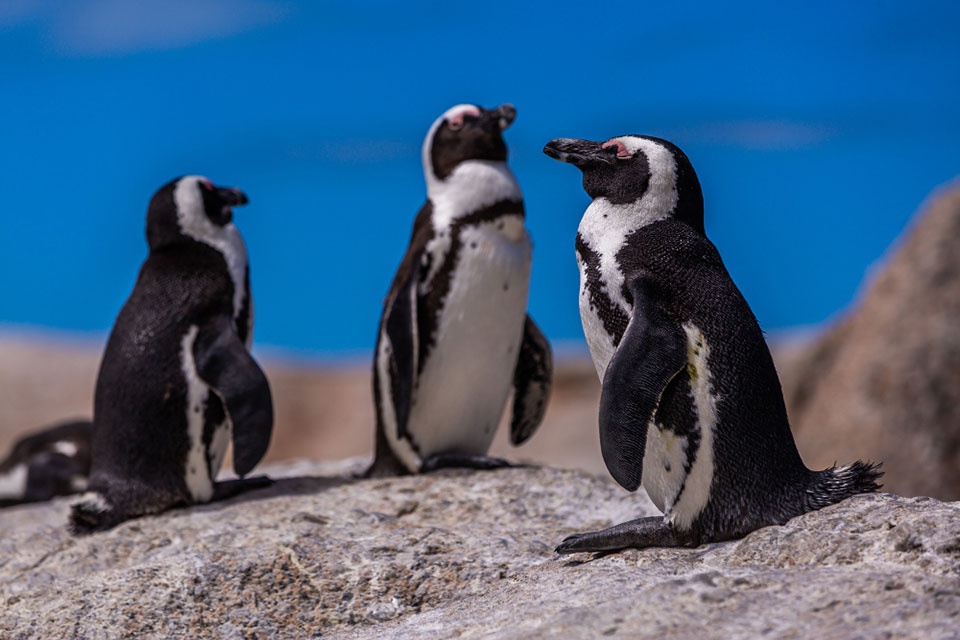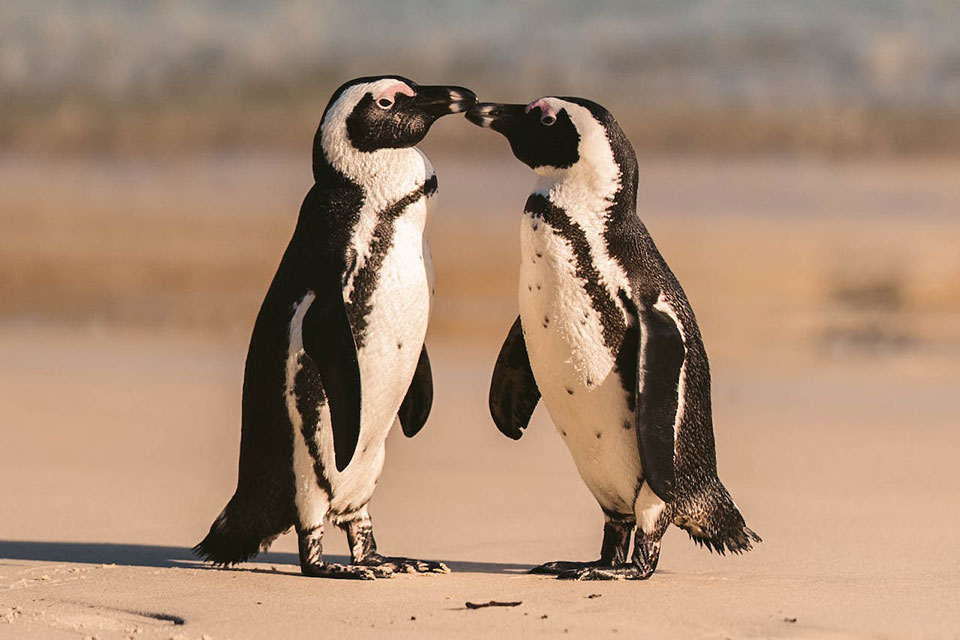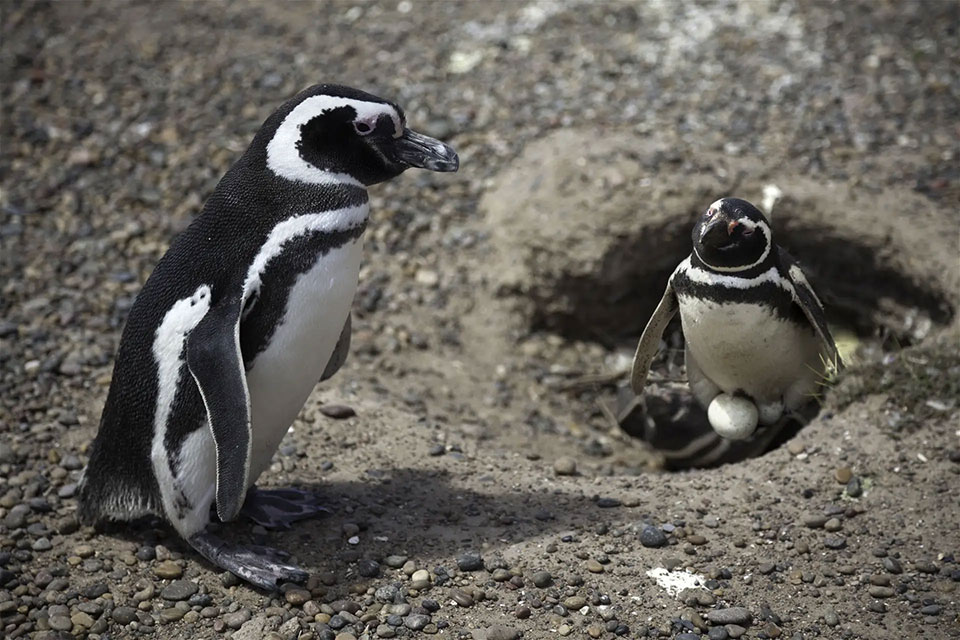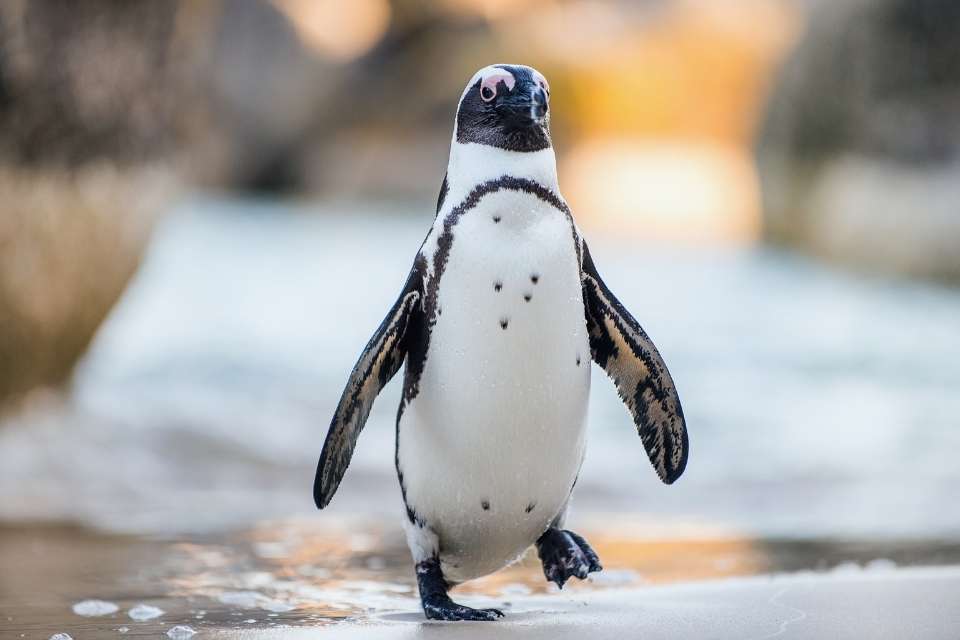Have you ever wondered if penguins lay eggs? Well, the answer is yes, penguins lay eggs as part of their reproductive process.
Penguins are fascinating creatures that follow a unique reproductive process.
In this article, we will explore their breeding habits and learn more about penguin eggs and reproduction.
Key Takeaways:
- Penguins lay eggs as part of their reproductive process.
- Most penguin species lay two eggs per breeding cycle.
- Emperor penguins and King penguins lay only one egg per breeding cycle.
- Penguins exhibit dedicated parenting behaviors, taking turns incubating the eggs and caring for their chicks.
- Conservation efforts are crucial for protecting penguin species facing the threat of extinction.
Penguin Egg-Laying Process
When it comes to the egg-laying process, penguins exhibit fascinating nesting habits and reproductive behavior. These charismatic birds construct nests to lay their eggs in, providing a safe and secure environment for their offspring.
The incubation period for penguin eggs varies among species, typically lasting anywhere from 32 to 64 days.
What sets penguins apart is their shared responsibility in incubating the eggs. Both male and female penguins take turns taking care of the eggs, ensuring the necessary warmth and protection.
This unique behavior highlights the cooperative nature of penguins when it comes to parenting their young.
After a couple of days, the chick inside the egg starts to crack the shell, signaling the beginning of its emergence. It takes approximately a month for the chick to fully hatch and break free from its shell.
Throughout this process, the chick communicates with its parents through peeping sounds, establishing a bond and connection.
Penguin Egg-Laying Process Table:
| Penguin Species | Incubation Period (days) |
|---|---|
| African penguins | 40 – 42 |
| Gentoo penguins | 33 – 35 |
| Erect Crested penguins | 31 – 37 |
| Adelie penguins | 30 – 32 |
| Galapagos penguins | 38 – 40 |
Understanding the egg-laying process of penguins provides valuable insight into their reproductive journey. From constructing nests to shared incubation responsibilities, these remarkable birds exemplify the unique and devoted parenting behaviors observed within the penguin community.
Different Penguin Species and Egg Laying
When it comes to penguin species, their egg-laying patterns vary. Let’s take a look at some of the different species and their egg-laying habits.
African Penguins

African penguins, also known as the jackass penguins, usually lay two eggs per breeding cycle. This species is found along the coast of South Africa and Namibia, and their eggs are an important part of their natural reproduction process.
Emperor Penguins
Emperor penguins, made famous by the movie “March of the Penguins,” follow a different pattern. They lay only one egg per breeding cycle. These remarkable birds endure the brutal Antarctic winters to protect and incubate their solitary egg.
King Penguins
Similar to Emperor penguins, King penguins also lay just one egg per breeding cycle. These majestic birds are found on the subantarctic islands in the Southern Ocean. They have a unique breeding system where the parents take turns caring for the egg until it hatches.
Galapagos Penguins
Galapagos penguins, the only species of penguins found in the Northern Hemisphere, typically lay two eggs per breeding cycle. These small and agile birds are endemic to the Galapagos Islands in Ecuador and face various threats to their survival, including climate change and human interference.
Erect Crested Penguins
Erect Crested penguins are renowned for their distinctive orange crests. Interestingly, they lay two eggs but only incubate the second one.
This behavior is still not fully understood, and researchers continue to study the unique reproductive habits of these fascinating penguins.
While these are just a few examples, they demonstrate the diverse egg-laying patterns among penguin species. It’s important to remember that not all penguins lay the same number of eggs, and each species has its own unique reproductive processes.
Penguin Parenting Behaviors

When it comes to parenting, penguins truly stand out with their remarkable instincts and behaviors. These incredible birds go above and beyond to ensure the survival and well-being of their offspring.
Penguins exhibit a high level of dedication and cooperation in parenting. Both the male and female penguins take turns incubating the eggs, allowing each partner to fulfill their responsibilities and meet the needs of their growing family.
This shared incubation duty helps to maintain the optimal temperature for the developing embryos.
Male Emperor penguins, for example, take on the extraordinary task of balancing the eggs on their feet to keep them warm, while the female searches for food to sustain them both.
This selfless act of incubation often lasts for several weeks, showcasing the immense parental commitment of these magnificent creatures.
Penguin Life Cycle
- Egg-laying: Penguins construct nests and lay their eggs in them, providing a safe and secure environment for their offspring.
- Incubation: Both male and female penguins take turns incubating the eggs, ensuring the proper development of the embryos.
- Hatching: After a few days of cracking the eggshell, the chick emerges, starting its journey into the world.
- Parental Care: Penguins actively care for their chicks, providing nourishment, warmth, and protection as they grow.
- Fledgling: Once the chicks have matured enough, they leave the nest and venture into the surrounding waters, beginning their independent lives.
These parenting behaviors are not limited to the incubation period; penguins continue to nurture and support their chicks even after hatching. Both parents participate in feeding the chicks, regurgitating food from their stomachs to nourish their young ones.
This process enables the chicks to receive essential nutrients for their rapid growth and development.
The dedication of penguins extends beyond a single breeding season. Many penguin species exhibit monogamous mating habits, forming long-lasting pair bonds with their chosen partners.
This loyalty ensures the consistency and stability that is crucial for successful reproduction and the overall preservation of penguin populations.
| Penguin Species | Incubation Period | Parenting Behaviors |
|---|---|---|
| African penguins | Approximately 38-42 days | Both parents actively care for the chicks, taking turns in incubation and feeding. |
| Emperor penguins | Around 64 days | Male penguins incubate the eggs, while the females travel long distances to find food. |
| King penguins | About 54 days | Parents take turns incubating the eggs and feeding the chicks. |
Conclusion
Penguins are truly remarkable creatures that captivate our hearts with their unique characteristics and behaviors. From their ability to lay eggs to their dedicated parenting instincts, penguins showcase the wonders of the natural world.
However, it is crucial to recognize the pressing need for penguin conservation in order to prevent their extinction.
Various penguin species across the globe face the threat of extinction due to the detrimental effects of climate change and global warming. Rising temperatures and melting ice caps pose significant challenges to penguin habitats and their food sources.
As responsible stewards of the planet, it is our duty to take action and protect these incredible birds. By supporting penguin conservation efforts, we can contribute to safeguarding their future and preserving the delicate balance of our ecosystems.
Together, we can make a difference and ensure that penguin species continue to thrive for generations to come.
FAQ
Do all species of penguins lay eggs?
Yes, all species of penguins lay eggs.
How many eggs do penguins typically lay?
The majority of penguins typically lay two eggs per breeding cycle.
Which penguin species lay one egg?
Emperor penguins and King penguins are examples of species that lay only one egg per breeding cycle.
How do penguins take care of their eggs?
Penguins construct nests and take great care of their eggs, exhibiting unique nurturing instincts.
How long does it take for penguin eggs to hatch?
The incubation period for penguin eggs varies among species, ranging from 32-64 days.
Do both male and female penguins incubate the eggs?
Yes, both male and female penguins take turns incubating the eggs.
How long does it take for a penguin chick to fully emerge from the egg?
It takes about a month for the chick to fully emerge from the shell.
How do the chicks communicate with their parents?
The chicks communicate with their parents through peeping sounds.
How many eggs do different penguin species lay?
African penguins, Gentoo penguins, Erect Crested penguins, Adelie penguins, and Galapagos penguins usually lay two eggs per breeding cycle. Little penguins can lay one or two eggs.
Emperor penguins and King penguins lay only one egg per breeding cycle. Erect Crested penguins lay two eggs but only incubate the second one.
What parenting behaviors do penguins exhibit?
Penguins are devoted parents and exhibit remarkable parenting behaviors. Male and female penguins take turns incubating the eggs and feeding and nourishing the chicks.
Penguins also have monogamous mating habits, with most species staying loyal to one partner throughout their lives.
Why is it important to protect penguin species?
Many penguin species are facing the threat of extinction due to climate change and global warming. Conservation efforts must be made to ensure the survival of these incredible creatures.


